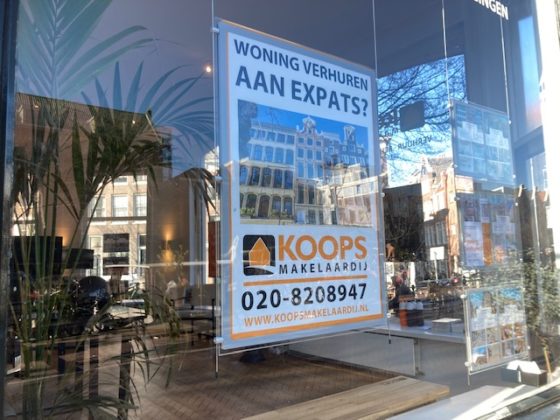Dutch to expand regulated housing sector, limit for rent controls to rise


Housing minister Hugo de Jonge has confirmed he plans to expand rent controls to cover more Dutch housing, in an effort to boost the supply of affordable homes.
In effect, the minister plans to hike the current maximum rent in the rent-controlled sector from €763 per month to between €1,000 and €1,250 – the exact figure will be decided later.
‘Many people cannot find affordable housing or face housing costs which are too high,’ De Jonge said. ‘This is why more affordable homes must be built, in both the social and mid-market sector. And that is why we are going to regulate mid-market rents and better protect tenants and buyers.’
At the moment landlords have free choice in deciding the rent of property which is calculated to be worth more than 143 points in the regulatory system. Homes with fewer points are classed as social housing with a maximum price of €763 per month.
Points are awarded for amenities such as the number of bedrooms, whether or not the apartment has luxury bathroom fittings and the age of the property.
De Jonge’s new maximum will be between 188 and 232 points, meaning far more properties will fall under rent controls. People who are faced with rents higher than the maximum allowed will be able to take their complaints to a housing tribunal. The new system is slated to come into effect in 2024.
As yet, there are no indications about how many rental properties will become cheaper and if the new rules will apply to existing or new tenants only. Nevertheless, the changes should benefit international workers, particularly in the bigger cities, where landlords often charge high rents for tiny houses.
People on high incomes who live in social housing will also face large rent increases in an effort to encourage them to move, while the rules covering housing benefit will be simplified, so that more people will qualify, De Jonge said.
The minister also plans to do more to tackle rogue landlords.
New homes.
Since May 1, official property values have been less important in calculating whether a rental apartment or house should be covered by social housing rules.
Until then, 100% of the official value of a property was in calculating the points, and that means that thousands of properties in expensive areas had been removed from the social housing system.
De Jonge expects that change would mean 23,000 homes which could have become too expensive will stay classified as social housing, and some 15,000 homes will revert to the rent controlled sector, when current contacts expire.
De Jonge earlier announced plans to build 900,000 new homes in the Netherlands by 2030, of which 350,000 will be ‘affordable’ rental and owner occupier properties for people on ‘middle’ incomes.
Currently, 57% of the Dutch housing stock is owner occupied, 33% is rent controlled and just 9% is available for people earning more than €40,000 who wish to rent.
Thank you for donating to DutchNews.nl.
We could not provide the Dutch News service, and keep it free of charge, without the generous support of our readers. Your donations allow us to report on issues you tell us matter, and provide you with a summary of the most important Dutch news each day.
Make a donation